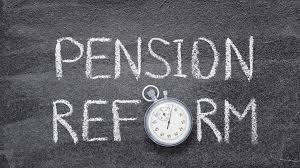The national exchequer is under significant financial pressure. Salaries and allowances alone cost around Rs2 trillion each year. Pensions add another trillion rupees to the bill, which is about 1% of the country’s GDP. Together, these costs make up a large part of a budget that totals Rs18.7 trillion. This, of course, comes with a persistent annual deficit of Rs6 trillion.
In this context, the government’s decision to implement pension reforms for new employees from the next fiscal year is a positive move. It aligns with the recommendations of international donor agencies, who are advocating for a leaner, more efficient bureaucracy and pension system. The proposed reforms will introduce a “self-funded scheme” where new employees will contribute a portion of their salary to their pensions. They will save for retirement throughout their careers, with additional contributions from the state as defined by law.
While the reforms are a step in the right direction, they are only a partial solution. The current pension system, which supports over 1.3 million state employees and military veterans, is outdated and needs a comprehensive overhaul. The new regulations will apply to both civilian and military employees, reflecting the government’s broader efforts to reduce spending. This mirrors the military’s own drive to control costs.
However, the private sector, which accounts for more than 80% of the economy, is not part of these reforms. Private sector workers often enjoy better retirement benefits than those provided by the state. This disparity highlights the need for further adjustments in the government’s pay and pension structure.
There is also an urgent need to address corruption within the system. A well-structured pension reform plan could help tackle inefficiencies, ensuring that public funds are used more effectively. Additionally, sectors where the government has reduced its involvement have flourished, showing that less state intervention often leads to better outcomes.
Pensions are an important part of any old-age benefit scheme, but they must be aligned with modern economic realities. Without a more forward-thinking approach, the current pension system could continue to drain state resources for years to come.


